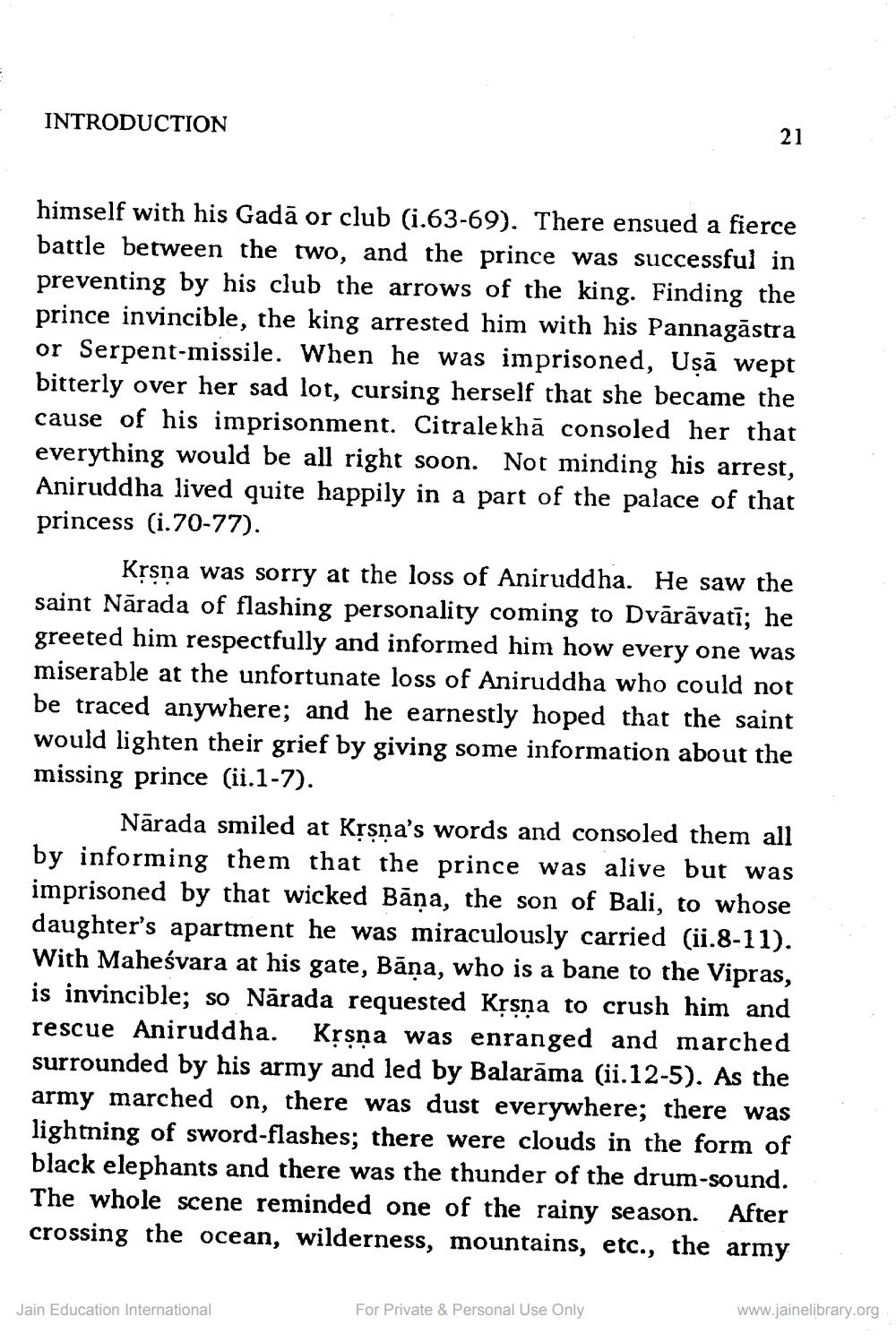________________
INTRODUCTION
21
himself with his Gadā or club (i.63-69). There ensued a fierce battle between the two, and the prince was successful in preventing by his club the arrows of the king. Finding the prince invincible, the king arrested him with his Pannagāstra or Serpent-missile. When he was imprisoned, Uşā wept bitterly over her sad lot, cursing herself that she became the cause of his imprisonment. Citralekhā consoled her that everything would be all right soon. Not minding his arrest, Aniruddha lived quite happily in a part of the palace of that princess (i.70-77).
Krsna was sorry at the loss of Aniruddha. He saw the saint Nārada of flashing personality coming to Dvārāvatī; he greeted him respectfully and informed him how every one was miserable at the unfortunate loss of Aniruddha who could not be traced anywhere; and he earnestly hoped that the saint would lighten their grief by giving some information about the missing prince (ii.1-7).
Nārada smiled at Kșsna's words and consoled them all by informing them that the prince was alive but was imprisoned by that wicked Bāna, the son of Bali, to whose daughter's apartment he was miraculously carried (ii.8-11). With Maheśvara at his gate, Bāna, who is a bane to the Vipras, is invincible; so Nārada requested Krsna to crush him and rescue Aniruddha. Krsna was enranged and marched surrounded by his army and led by Balarāma (ii.12-5). As the army marched on, there was dust everywhere; there was lightning of sword-flashes; there were clouds in the form of black elephants and there was the thunder of the drum-sound. The whole scene reminded one of the rainy season. After crossing the ocean, wilderness, mountains, etc., the army
Jain Education International
For Private & Personal Use Only
www.jainelibrary.org




